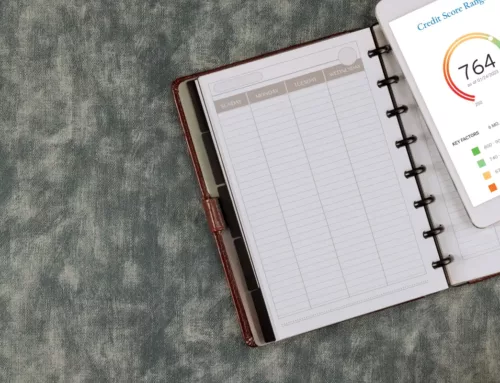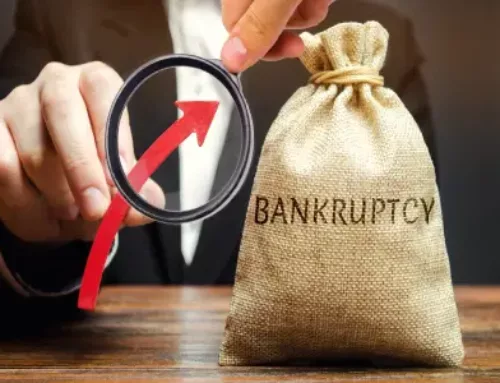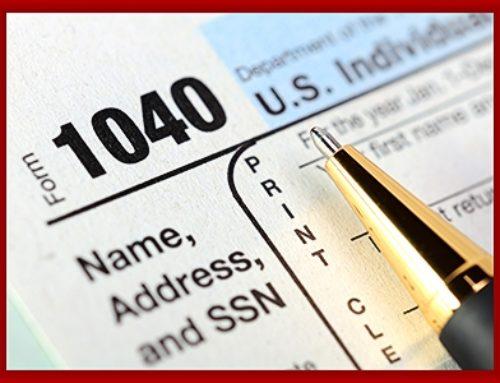How Long Does Chapter 7 Take
If you are from Arizona and interested in filing for bankruptcy under Chapter 7, you may be asking yourself, “When does Chapter 7 bankruptcy end?” In most cases, Chapter 7 bankruptcy cases could take six months to complete. It may, however, take longer for various reasons.
In this article, we’ll talk about:
- How Does Chapter 7 Bankruptcy Work?
- What to Expect in a Chapter 7 Bankruptcy Case?
- Is There Life After Filing for Bankruptcy?
- What Can Make My Chapter 7 Case Longer?
If you still have concerns about the key advantages of Chapter 7 bankruptcy, this article will provide you with thorough answers to your concerns with the assistance of an experienced bankruptcy lawyer.
How Does Chapter 7 Bankruptcy Work?
 In Chapter 7 bankruptcy, you will get to eliminate your debt without having to construct a payment plan. Through the means test, you will determine whether you qualify or not.
In Chapter 7 bankruptcy, you will get to eliminate your debt without having to construct a payment plan. Through the means test, you will determine whether you qualify or not.
Filing for chapter 7 bankruptcy also allows you to retain your essential properties, such as your job and home. The properties that you cannot retain will fall under the category of “nonexempt properties,” which are sold by the bankruptcy trustee to provide payment to your creditors.
What To Expect in Chapter 7 Bankruptcy Case
In a Chapter 7 bankruptcy case, it is required that you complete all the documents before you qualify for discharge. Here are the things that you need to expect:
- File your paperwork – As soon as you file your paperwork before the bankruptcy court, the case will commence. These documents will state the pertinent information about you, such as debts, assets, expenses, income, financial transactions, and properties you are planning to exempt under Arizona bankruptcy exemptions.
- Attend the Meeting of Creditors – A court order will be issued to stop creditors from engaging in any collection activities against you. The court will schedule a date when you will be required to attend a meeting of creditors, otherwise known as the 341 hearing. The bankruptcy trustee will ask several questions pertaining to your financial information. On the other hand, creditors are given the opportunity to inquire as well.
- Provide additional data – In the event that the trustee in bankruptcy requires you to provide additional information, or if you fail to present your valid identification cards, such as your social security card or driver’s license, the trustee will set another date for the hearing. Your creditors are given only 30 days to raise objections to your case after the hearing is concluded.
- File financial management course certificate – After receiving the notice of the 341 meeting, you may proceed with taking your financial management course. You should finish the course within 60 days from the time the 341 meeting was conducted.
- Get your discharge – If everything goes well, you may expect to get your bankruptcy discharge after 60 days from the date of the 341 meeting. This does not imply that the court will close your case right away, though not until the bankruptcy court has settled all outstanding issues and issued the final decree.
Most Chapter 7 bankruptcy cases are already considered closed for a period of about four months. The length of your Chapter 7 bankruptcy petition will depend on the facts and background of your case.
Is there life after filing bankruptcy?
Your credit score may initially decrease when you file a bankruptcy petition, depending on the score you had prior to filing. It will, however, rebuild shortly as your case proceeds. There are steps that you can take to improve your credit score, including:
- Financing a new car,
- Making payments on time using a newly obtained credit card,
- Starting a secured line of credit through your bank, and
- Filing for bankruptcy without any amount as a payment plan.
We understand that you have many doubts and questions inside your head. When considering a bankruptcy attorney, always choose the best one. Start a stress-free financial analysis with us today for comprehensive legal help.
What Can Make the Chapter 7 Bankruptcy Longer?
There are several common reasons why Chapter 7 bankruptcy filing may take longer than expected:
- The trustee requires more information – If the trustee requests additional information, your case will be delayed until the information is provided. It will reschedule the 341 meeting, extending the deadlines to pass the needed documents before the case is closed.
- Your creditor needs more answers – Debt collectors are given the opportunity to raise inquiries at the 341 hearing. If the trustee cannot address all the questions at once, another meeting might be rescheduled. Continued meetings can also happen in complex cases where the creditor has a reasonable doubt that your case involves bankruptcy fraud.
- The trustee is selling your property – Your petition for bankruptcy might remain unclosed if the trustee has to sell some of your personal properties. Unless otherwise, the trustee has successfully sold your property, distributed the money to your creditors, and transmitted the financial report to the United States bankruptcy court, your case will remain open.
- A legal issue needs resolution – It sometimes happens that the bankruptcy case will involve complex issues that only the bankruptcy judge can resolve. For instance, your lender finds out that you need to repay the unsecured debts by filing a lawsuit to determine whether it’s dischargeable or objects to your bankruptcy case. In circumstances like this, your discharge would be delayed.
- Your student loan debt – Getting rid of student loans is not that simple. You have to file an adversary proceeding to adduce that paying them can lead to undue hardship on your part. You can have your student loan debts discharged by either proving your case in court or settling with the creditor prior to getting the discharge. Until this is resolved, your case will remain incomplete.
Contact our Phoenix Bankruptcy Attorney Now
Financial problems are inevitable. As you just saw, there are a lot of technicalities and complex aspects in every bankruptcy procedure. Filing for Chapter 7 bankruptcy should not bother you because it may be the wise answer to getting out of debt and attaining financial freedom. If you are currently worried about filing a bankruptcy petition, consulting with an experienced Arizona bankruptcy attorney can definitely help.
Phoenix Fresh Start Bankruptcy Attorneys is one of Arizona’s top bankruptcy law firms. With over 18 years of experience in bankruptcy, we have filed more than 4,500 successful cases. Other than Chapter 7, we also handle cases in Chapter 13 bankruptcy. Maybe it’s time that you discover your smart bankruptcy options. If you are interested, schedule a no-obligation consultation today!







